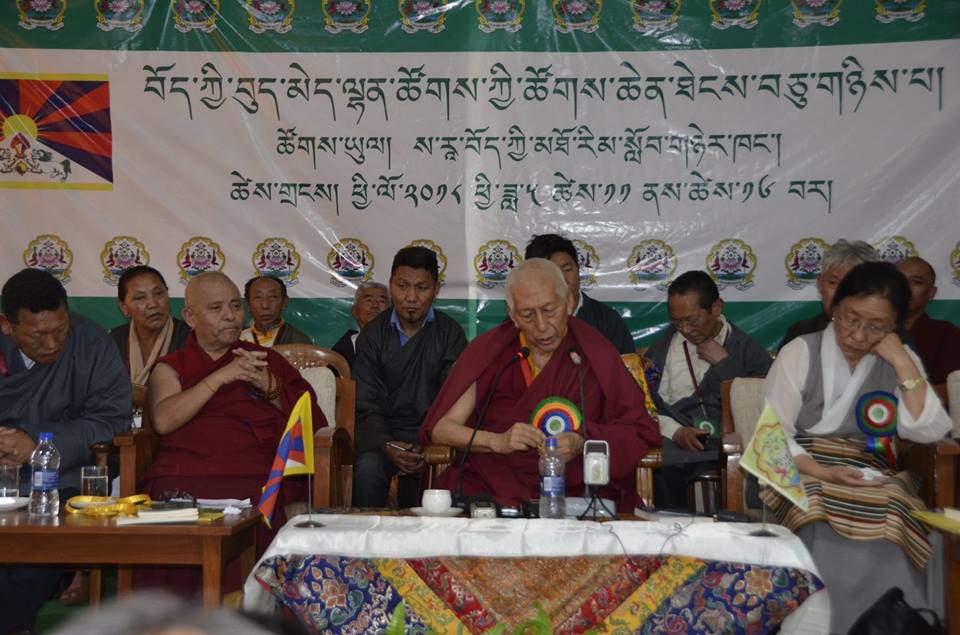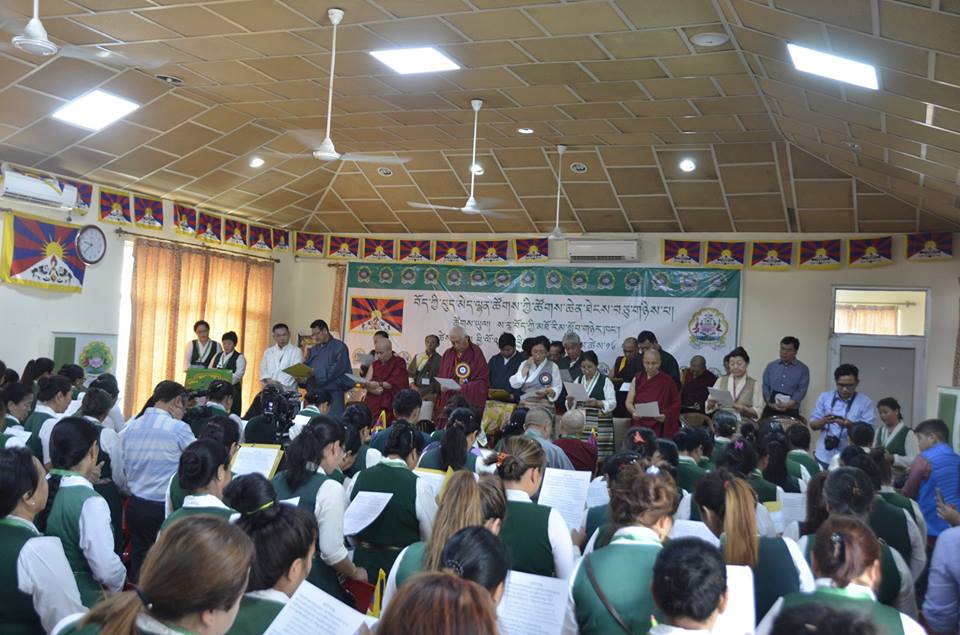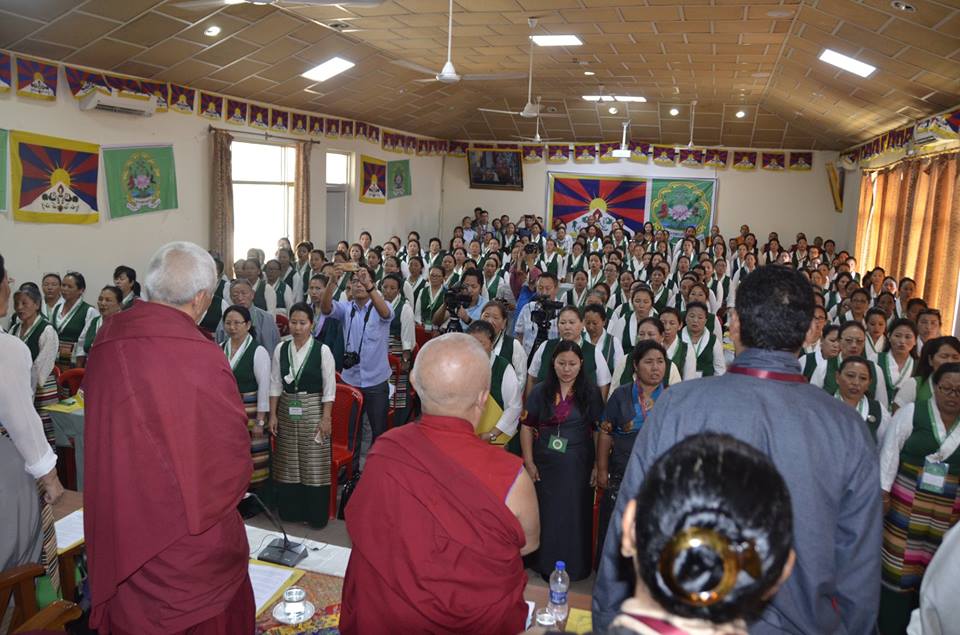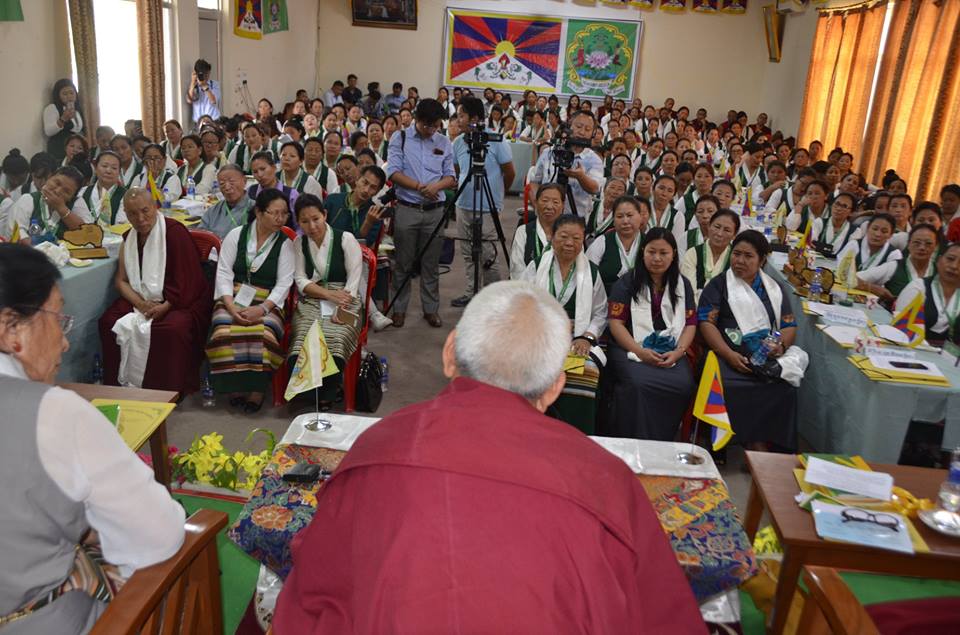Address at the 12th General Meeting of Tibetan Women’s Association
His Eminence Prof. Samdhong Rinpoche graced as the Chief Guest at the inaugural session of the 12th General Meeting of Tibetan Women’s Association, convened on 11 May 2018, at Sarah Institute of Higher Tibetan Studies, Dharamshala.
The dignitaries on the dais comprised of Acharya Yeshe Phuntsok, the Honourable deputy speaker of the Tibetan parliament, the special guest for the occasion; Ms Rinchen Khando, the Honourable former minister, an advisor to Tibetan Women’s Association, and the director of Nuns’ Project; Ms Tsering Dolma (MP); and representatives from the administration and non-governmental organisations. The participants were 192 representatives from 37 regional branches of the association.
The session began with Ms Dolma Yangchen, the president of Tibetan Women’s Association, giving a welcome speech and a report of the activities of the past 3 years. The next speech was from the special guest.
Thereafter, His Eminence Prof. Samdhong Rinpoche, the Chief Guest, delivered the keynote address.
His Eminence Rinpoche said: In general, the human society needs to be where women and men are unified/co-joined, it is not a society that can be solely maintained by men, nor solely by women; also, when revolving in samsara it is a cycle through karma (actions) and afflictive thoughts jointly; also, when attaining liberation the method and wisdom are to be present jointly, that one cannot attain enlightenment solely by method, and that one cannot attain enlightenment solely by wisdom, was repeatedly advised by Buddha. As such, when one is absent, the other becomes absent as well; and, when the reality of dependence on one another is not there in completeness, the reality of samsara and transcendence becomes a pair split.
In primordial society, too, the duties of men and women were equal, yet there was a demarcation as regards what are the main responsibilities for men and women. In original society there was just the talk of duties, not of rights. To talk of rights is a change of times in the modern civilization; from the day that talk of rights takes place there naturally ensue competition, conflict, and the attitude of ‘we must challenge that.’
Further on His Eminence Rinpoche pointed out: Instead of fighting for rights, in imitation of Westerners, it is necessary and important that in future Tibetan women rather—like the deeds of former generations of Tibetans—strengthen the thought of not lagging behind in women’s duties, and to communicate that.
On the outlook of Buddha regarding women and men as equal, His Eminence Rinpoche explained: During the time of Buddha the worst social custom prevalent in India was to discriminate between men and women, one as superior and the other inferior, and to divide the society into caste divisions, whereby there was no equality of rights as regards performing of rites. Buddha taught that in Buddha’s fold caste is not the main thing, creed is not the main thing, physical basis is not the main thing, rather the thought is the main thing [that matters]; Buddha had, thus, pioneered in the Indian society a special new system. If one looks at the teachings of all founders of religions there is perhaps no other like that of Buddha’s teachings where there is no division into the physical bases as man and woman, that at all times both can participate equally. In any of discourses (Sūtras) and continuity (Tantras) taught by Buddha there are the mentions of “sons of the lineage and daughters of the lineage.” An essential aspect of Buddha’s teachings is that the method and wisdom must not be split, for attaining of any goals of this and the next: attaining of arhant state (foe-destroyed state), and so on.
His Eminence Rinpoche continued with other insights and guidance in great details.
(The audio-visual recording of the talk is at this site: https://www.youtube.com/watch?v=UB1UzUPPdYw)



